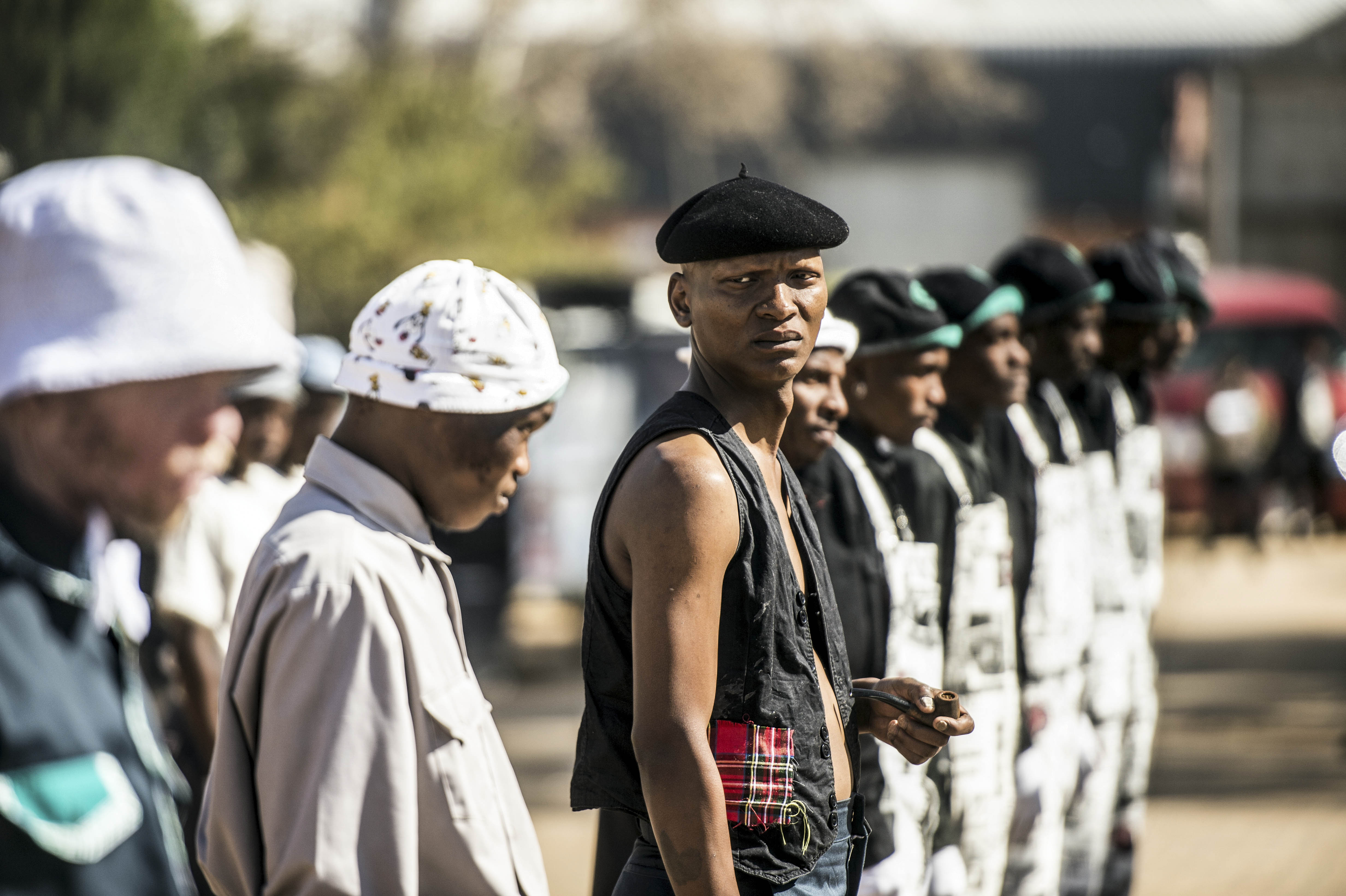Tjovitjo brings sepantsula culture to life with real South African experiences
“If anything is going to kill us, it better be this,’’ says filmmaker and producer Lodi Matsetela. She is talking about the record-breaking drama series, Tjovitjo.
Fuelled by an incredible love for authentic storytelling and uncompromising filmmaking, Matsetela and director Vincent Moloi teamed up to create the 24-part drama series, which has already captivated more than 5.7-million SABC 1 viewers in its first two weeks of airing.
Originally conceived as a feature film four years ago, and centring on a group of dancers, Tjovitjo considers pantsula beyond its practicality, exploring the dance form as a language and a way of life.
The first episode introduces viewers to maFred (played by Warren Masemola), leader of the pantsula dance crew amaTjovitjo, who delivers an emotive reminder and declaration that speaks to the defiance and strength of black people.
Tjovitjo is impressive on both sides of the camera — script and cinematography. So far, the series has done something that hasn’t been seen on South African primetime TV in decades: telling local stories that exist outside of It Girl aspirations and African-American imitations. Tjovitjo arrives with the promise to satisfy a craving for stories that viewers can relate to and are unmistakably South African.
“We need to move past vacuous and vapid shows that encourage laughing at each other and aspiring to an aspiration that is not about us, [an aspiration] that’s not authentically South African. sePantsula is quintessentially South African, Beyoncé can come here and like it and popularise it elsewhere, but it’s still South African and those are the kind of stories we want to tell … our stories,” insists Matsetela.
She explains: “It’s easy to look at the story and ask yourself, where’s the entertainment? South African television right now requires that we be entertained by people who aren’t like us, who we can’t place in our everyday experiences, people we don’t know in situations we would never actually be in. And now [with Tjovitjo], people actually have to think and use their own effort to figure out the story or find its relevance to them.”
Forming part of a bigger vision of transformation and equal opportunity in the film industry, Puo Pha Productions, under Matsetela and Moloi’s directorship, trained more than 20 dancers for almost two years with the help of Princess Mhlongo and Hlengiwe Lushaba at Pl4tfrm Studios. The exercise proved to be financially strenuous.
But, despite being in debt and struggling to get financial support from government institutions such as the department of trade and industry, which routinely fall short of their goal of sustained support for black filmmakers, Matsetela and Moloi’s commitment to creating work that was genuine and effective never wavered. Every decision was deliberate and intentional. Moloi did not hold auditions, choosing instead to hand-pick cast members rooted in the very places and circumstances around which Tjovitjo revolves. He wanted people who could inform the storyline with lived experience, and whose own lives could be transformed by the series.
“[After shooting], there was a graduation of sorts that happened with the dancers, and that’s what this is about. It’s about catapulting careers, because we’re building here,” says Matsetela.

Leader of the pantsula dance crew amaTjovitjo, maFred, is played by Warren Masemola (Siphiwe Mhlaba)
Tjovitjo is about a love for ourselves that precedes oppression. It’s about the state of fear and fight that characterises blackness, it’s dancing in spite of and surviving in defiance. Tjovitjo is filmmaking in the time of Twitter-feed television, but it is also a tender holding of all our broken parts. Tjovitjo is not about a single story, it’s about creating a space for visibility where we see more of ourselves, proving that visibility is not just for the people with glam squads, but also for those in dusty streets where sepantsula is a philosophy, a daily act of prayer and resuscitation.
As maFred puts it: “We stay together. We fight for what’s ours. They can copy us and sell the fake to us. But they’ll never get to the depth of our souls. No matter how much they try to make us irrelevant, they can never be us. To be us is hard, you have to lose the privilege the world has allowed you.
“Even those who are supposed to be our protectors, our guardian angels against our enemies, we know they too fight us. They know, we know, we are gifted. We know they fear us. We fear them too, but we never gonna give in the fight for our existence. We have our stories to tell and a history to write.”